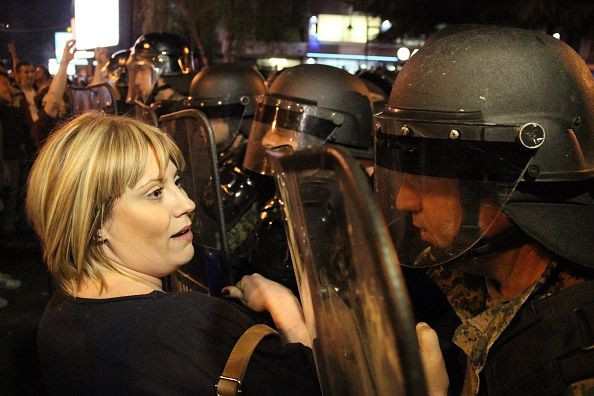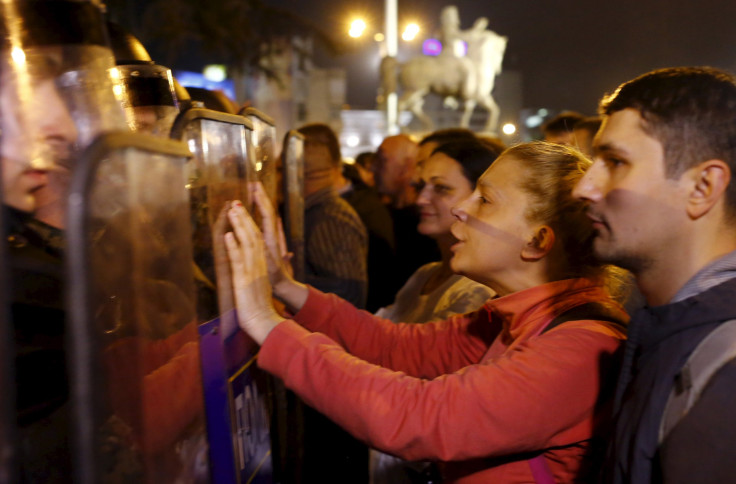Protests Sweep Macedonia Amid Wiretapping And Corruption Scandal

Demonstrators took to the streets of the Macedonian capital of Skopje for the fourth consecutive night Friday amid a wiretapping and corruption scandal that has both the U.S. and the European Union worried about the country’s future direction as it has called for snap elections in June.
The small Balkan nation of about 2 million people has been roiled by growing anti-government protests since Tuesday, when President Gorge Ivanov pardoned 56 politicians who were involved in a corruption scandal. Ivanov defended his decision to halt investigations of the politicians.
“Anyone who thinks that a right has been taken from him or that I have done him a bad favor, or wants to prove his innocence in court, I call on him personally, in a written form, to submit a request to annul the decision regarding him,” BBC News quoted Ivanov as saying.
Macedonia’s Parliament was dissolved Friday, and the snap elections were set for June 5. However, the primary political opposition party, the Social Democratic Union of Macedonia (SDSM) has indicated it would boycott the elections. SDSM leader Zoran Zaev said the conditions for a free and fair election were not in place, Agence France-Presse reported.

SDSM called for investigations in February 2015, accusing then-Prime Minister Nikola Gruevski of wiretapping 20,000 people, including activists, diplomats, journalists and politicians. The government responded by labeling party leader Zaev a spy. Recordings made as a result of the wiretaps point to corruption at the top echelons of government, as well as cover-ups of killings and mishandled criminal cases.
“The situation is unpredictable and out of control,” Borjan Jovanovski, chief editor of the online broadcaster Nova TV told the Wall Street Journal. “The amnesty decision by the president was shocking, it suspends the rule of law, and it could seriously destabilize an already unstable situation.”
Demonstrators called on Ivanov to step down. And European Council President Donald Tusk warned Friday that Macedonia risked its European future.
Europe needs a stable FYROM guided by the rule of law. The country's Euro-Atlantic future is at risk
— Donald Tusk (@eucopresident) April 15, 2016
Russia has stepped into the fray, saying opposition groups were the ones responsible for creating conflict in Macedonia, the Russian government’s news agency Tass reported.
“[The] Macedonian opposition has once again become the instrument of fanning, including with support from the outside, an internal political conflict with the aim of disrupting snap election scheduled for 5 June 2016 that represent the only democratic and legitimate way out of the prolonged crisis,” the Russian foreign ministry said in a statement.
U.S. and EU officials met with Ivanov Thursday to discuss the ongoing situation. Demonstrations were peaceful Friday evening, but protesters ransacked government offices earlier in the week.
© Copyright IBTimes 2024. All rights reserved.






















